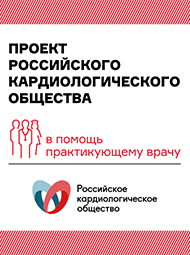ACC: Vascular Disease, Marital Status Linked?
Being married was associated with a lower likelihood of having various types of vascular disease compared with not having a spouse, a study of more than 3.5 million people showed.
Those who were married had a relative 5% lower likelihood of any vascular disease than people who had never married (OR 0.95, 95% CI 0.93-0.96), according to Carlos Alviar, MD, of NYU Langone Medical Center.
Those who were divorced or widowed, however, were more likely to have any vascular disease than were those who never married (ORs 1.03 to 1.05), Alviar reported on a conference call with reporters ahead of the American College of Cardiology meeting here.
The lower odds of vascular disease associated with the married state were consistent in both men and women -- although they tended to be more pronounced in men across disease types -- and were magnified in younger individuals.
"We probably need more research to establish the potential explanation for these findings and their clinical implications," said Alviar, who noted that the mechanisms were not clear.
One of the theories, he said, is that married people are better about handling their medical care -- following up on appointments and complying with medications -- and have a greater focus on healthy lifestyle behaviors.
And there might be biological explanations, as well, he said, noting that prior research has shown that married people have lower levels of vascular inflammation.
"This was a very interesting analysis that drives home the point that we cannot estimate cardiovascular risk purely based on metabolic abnormalities that we can measure, but that psychosocial variables can also be very important," said Vera Bittner, MD, MSPH, chief of preventive cardiology at the University of Alabama at Birmingham, who moderated the conference call.
Prior studies have identified associations between marriage and risks of heart disease -- including a recent one showing that middle-age women who lived with a spouse or partner had a lower risk of dying from ischemic heart disease. But those previous studies suffered from various limitations, including conflicting data, smaller sample sizes, the lack of distinction between people who were never married, divorced, or widowed, and a focus on coronary disease.
Alviar and colleagues addressed these limitations by examining data from the Life Line Screening Program, which included people who paid for vascular screening at one of more than 20,000 screening sites across the U.S. from 2003 to 2008. The current analysis included more than 3.5 million people (63% female), with an average age of 64. Overall, 69.1% were married, 13.5% were widowed, 9% were divorced, and 8.3% had never married, a distribution similar to that of the general U.S. population.
After adjustment for age, sex, race, and risk factors, being married -- versus having never married -- was associated with a lower likelihood of any vascular disease, in addition to specific types of vascular disease. The odds were 8.7% lower for abdominal aortic aneurysm, 8% lower for cerebrovascular disease, and 19% lower for peripheral arterial disease. The relationship with coronary disease was not significant.
Divorced and widowed individuals tended to have higher odds of various types of disease compared with those who had never married. Coronary disease, for example, was 4.6% higher in those who were divorced and 7.1% higher among those who were widowed.
Source: www.medpagetoday.com






